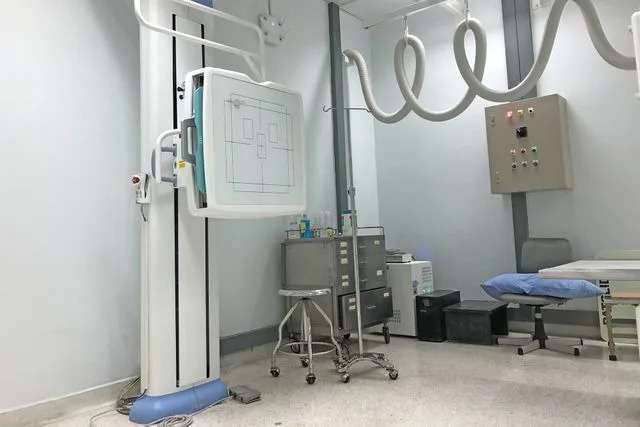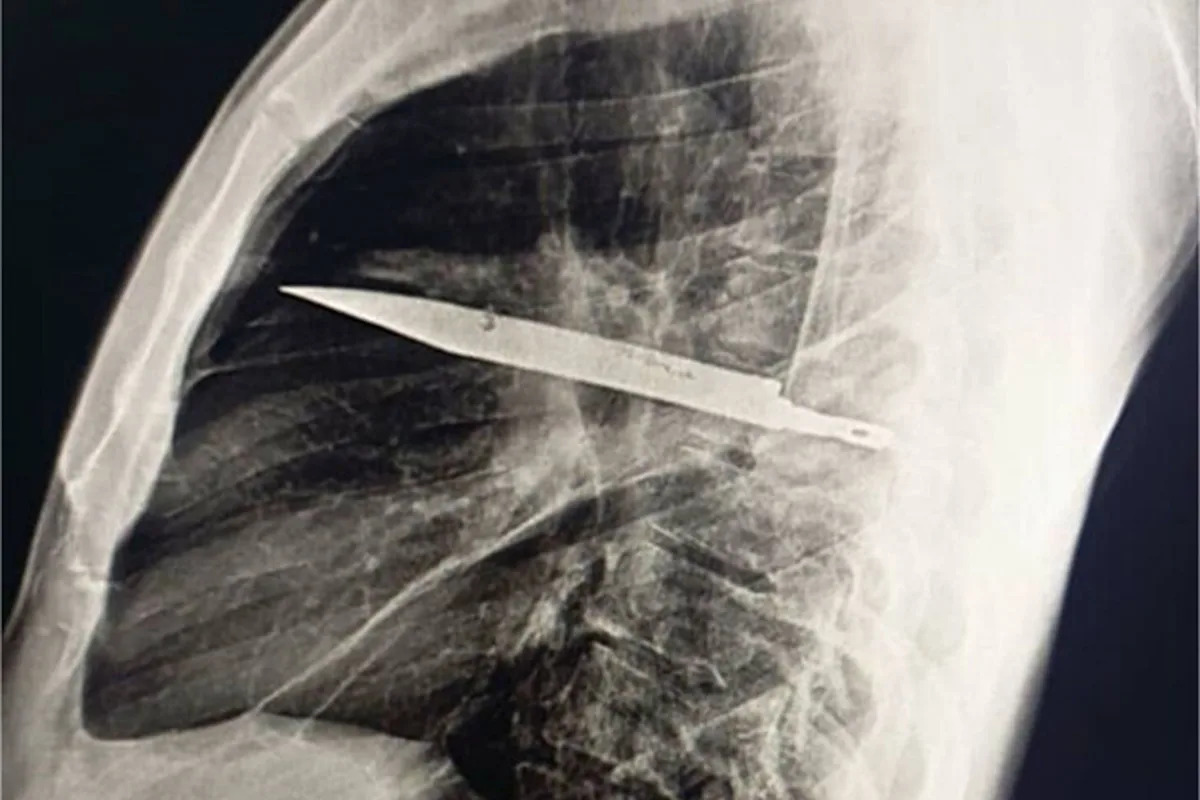NEED TO KNOW
-
A 44-year-old man from Tanzania sought medical care after his right nipple began leaking pus
-
An X-ray revealed a knife lodged in his chest from an attack eight years earlier
-
Researchers were able to remove the knife and highlighted the need for imaging and follow-up treatment in low-resource areas
A 44-year-old man sought medical care when his right nipple began leaking pus — and doctors discovered he still had a knife stuck in his chest from an attack eight years earlier.
The man, whose identity has not been disclosed, hails from Tanzania, and sought medical care when he noticed his right nipple was leaking pus, according to a case report, which noted he was “otherwise healthy” without any “chest pain, difficulty breathing, cough or fever.”
The patient shared that eight years ago he’d been “involved in a violent altercation” during which he sustained “multiple cuts to his face, back, chest and abdomen.” At the time, he received surface-level first aid to close the cuts, and given the limited resources in his area, he was not referred for an X-ray or any further scans.

Getty
Stock image of an X-ray machine.
“He had an uneventful course over the next eight years until his current presentation,” the researchers wrote, describing his emergency as “discharging foul-smelling pus with surrounding induration” right underneath his right nipple.
An X-ray showed “a retained metallic object” — a knife — inside his chest. It had entered through his scapula (shoulder bone) and was surrounded by “pus and necrotic tissue,” the case report said.
Doctors immediately performed surgery, removing the knife. The man was well enough to be discharged after 10 days. However, researchers noted that “while this patient recovered well after surgery, there was a considerable risk that the retained knife could lead to a fatal outcome.”
In this case, the patient’s body was able to “encapsulate the foreign body within a fibrous capsule, limiting inflammation and tissue damage,” but as his pus-leaking nipple showed, he was beginning to exhibit “serious complications.”
Never miss a story — sign up for PEOPLE’s free daily newsletter to stay up-to-date on the best of what PEOPLE has to offer, from celebrity news to compelling human interest stories.
Researchers highlighted how this case “underscores the significant challenges in trauma care within resource-limited settings, where access to basic imaging and surgical expertise is limited” — even when it’s direly needed: “This case illustrates the urgent need for increased awareness and improved protocols for trauma management safe surgery and safe [anesthesia] in low-resource setting.”
Read the original article on People
